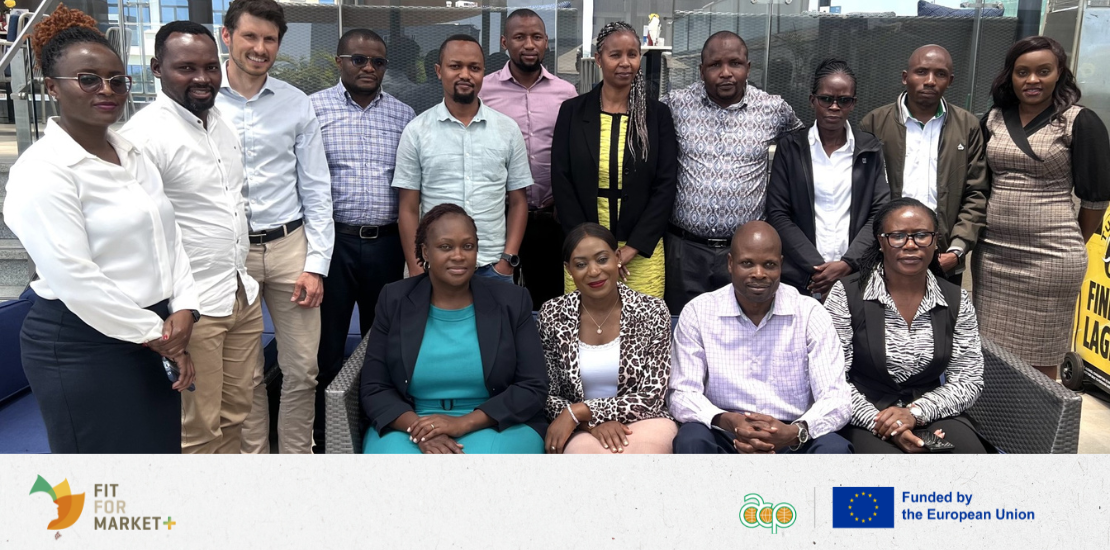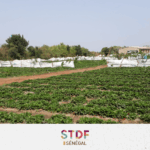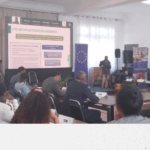- 10/06/2025
- Posted by: Christelle Bento
- Category: ACP EN, Corp EN, Headline, News

In April 2025, COLEAD organised a workshop in Nairobi for the Minor Crops Technical Working Group (MCTWG), which is coordinated by the Kenyan National Horticulture Standing Committee (NHSC). The group brings together competent authorities, the crop protection industry, producer organisations, and business membership organisations to facilitate the registration of plant protection products (PPPs) for minor crops, thereby enhancing their availability.
Tangible progress in PPP registration
With support from CABI, the Pest Control Products Board (PCPB) presented the group’s progress since 2017. The achievements are significant:
- 507 trial permits issued
- 423 efficacy dossiers submitted
- 201 PPPs registered
- Over 140 PPPs are currently in the registration process
These figures reflect the MCTWG’s growing efficiency, and its milestones will soon be communicated by the NHSC and PCPB. COLEAD, along with CABI and the Minor Use Foundation (MUF), will contribute to this communication effort.
COLEAD’s technical support
Since 2021, COLEAD has actively supported MCTWG activities through its FFM-SPS, FFM+ and NExT Kenya programmes. A total of 15 registration trials have been supported, resulting in six PPPs being registered, three dossiers being submitted, and five trials still ongoing. COLEAD has reaffirmed its commitment to continuing its support beyond the NExT Kenya programme, particularly through the EU-funded FFM+ programme. COLEAD is also supporting the extension of registrations to other East African Community (EAC) partner states.
MRL compliance: A key priority
A presentation by KEPHIS (the Kenya Plant Health Inspectorate Service) highlighted the interception of exports to the EU and the UK, particularly on roses, basil, capsicum, peas and beans. The main issues were non-compliance with plant health documentation and exceeding Maximum Residue Limits (MRLs), primarily due to substances such as acephate and methamidophos, which are set to be phased out after December 2024. Additional support is also needed for documentation compliance.
Towards sustainable pesticide management
The National Pesticide Residue Monitoring Plan, which is currently in the pilot phase, aims to standardise monitoring efforts across domestic and export value chains. Developed with CABI, the plan addresses regulatory frameworks, national MRLs, pesticide screening and risk assessment, as well as data management and reporting. Meanwhile, the Minor Use Foundation is finalising its prioritisation exercise for 2025, which will identify new projects to support MRL data generation for minor crops.
Supporting the transition to integrated pest management (IPM).
As the demand for sustainable agricultural practices increases among consumers, retailers and markets, minor crops continue to have limited access to innovations. Stricter regulations have reduced the number of available pest and disease control solutions, while alternative options require time for adaptation and have lengthy registration processes.
Through this partnership, COLEAD aims to provide producers with the necessary tools to implement IPM strategies, combining various approaches and improving access to sustainable solutions. This will enhance productivity while ensuring compliance with market standards and environmental expectations.
This activity is supported by the Fit For Market Plus (FFM+) programme, implemented by COLEAD within the Framework of Development Cooperation between the Organisation of African, Caribbean and Pacific States (OACPS) and the European Union. This publication receives financial support from the European Union and the OACPS. The content of this publication is the sole responsibility of COLEAD and can in no way be taken to reflect the views of the European Union or the OACPS.





